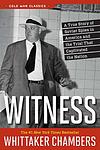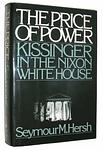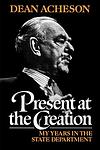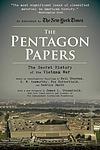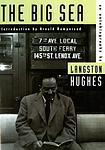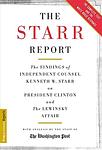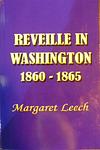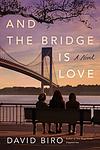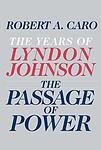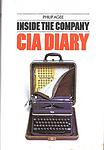The Greatest "Nonfiction, Washington, D.C." Books of All Time
Click to learn how this list is calculated.
This list represents a comprehensive and trusted collection of the greatest books. Developed through a specialized algorithm, it brings together 300 'best of' book lists to form a definitive guide to the world's most acclaimed books. For those interested in how these books are chosen, additional details can be found on the rankings page.
Genres
The "Washington, D.C." category for books encompasses a diverse array of literature that is either set in, influenced by, or pertains to the capital city of the United States. This genre includes political thrillers that delve into the machinations of American governance, historical accounts detailing the city's evolution, and biographies of influential figures whose lives and careers were shaped by their time in the nation's capital. It also features non-fiction works exploring the city's unique cultural, social, and urban dynamics, as well as guidebooks for visitors. From the corridors of power on Capitol Hill to the vibrant streets of its various neighborhoods, books in the "Washington, D.C." category offer readers a window into the heart of American politics, policy, and history.
Countries
Date Range
Reading Statistics
Click the button below to see how many of these books you've read!
Download
If you're interested in downloading this list as a CSV file for use in a spreadsheet application, you can easily do so by clicking the button below. Please note that to ensure a manageable file size and faster download, the CSV will include details for only the first 500 books.
Download-
1. The Education of Henry Adams by Henry Adams
"The Education of Henry Adams" is an autobiographical account that explores the changes in society and politics during the 19th and 20th century from the perspective of an individual who is both a product and critic of that era. The narrative is structured around the author's self-perceived failure to understand or adapt to these changes, despite his privileged education and social status. The book is a reflection on the author's life, his attempts to make sense of the world around him, and his struggle to reconcile his traditional upbringing with the rapid advancements of the modern world.
-
2. All the President's Men by Bob Woodward, Carl Bernstein
"All the President's Men" is a non-fiction book that details the investigative journalism conducted by two reporters who uncover the details of the Watergate scandal that led to President Nixon's resignation. The book provides a detailed account of the reporters' struggles to uncover the truth, the obstacles they faced, their persistence, and the ultimate revelation of a political scandal that shook the United States.
-
3. The Armies of the Night by Norman Mailer
This book is a unique blend of historical fact and autobiographical fiction, providing a detailed account of the October 1967 March on the Pentagon. It describes the author's experiences during the anti-Vietnam War demonstrations, where he was arrested and spent the night in jail. The narrative explores the author's interactions with other protesters, his observations on the nature of political activism, and his personal reflections on the Vietnam War. It also delves into the author's struggles with his personal beliefs and his role as a public figure during this turbulent period in American history.
-
4. Truman by David McCullough
This biography offers an in-depth examination of the life and presidency of Harry S. Truman, the 33rd President of the United States. The book covers his humble beginnings in Missouri, his service in World War I, his political ascension, and his unexpected presidency following the death of Franklin D. Roosevelt. The narrative also delves into his controversial decisions such as the use of atomic bombs on Japan and his handling of the Cold War, providing a comprehensive and balanced view of Truman's leadership and legacy.
-
5. Witness by Whittaker Chambers
"Witness" is a gripping autobiography that chronicles the author's life as a Communist party member, his espionage activities for the Soviet Union, and his eventual renunciation of communism. The book also details his role as the key witness in the 1948 Alger Hiss trial, a high-profile case that had a major impact on American politics during the Cold War. The narrative explores themes of ideology, betrayal, and redemption, and provides a unique perspective on the ideological battles of the 20th century.
-
6. Team of Rivals: The Political Genius of Abraham Lincoln by Doris Kearns Goodwin
This book explores the political acumen of Abraham Lincoln, focusing on how he assembled his cabinet from political adversaries, many of whom initially dismissed him for his perceived lack of experience and ungainly appearance. The narrative delves into how Lincoln used his rivals' talents to navigate the tumultuous times of the Civil War, maintaining unity and leading the nation towards the abolition of slavery. It underscores Lincoln's extraordinary ability to turn rivals into allies, demonstrating his leadership and his profound impact on American history.
-
7. Between the World and Me by Ta-Nehisi Coates
The book is a profound work that explores the concept of race in America through the lens of the author's personal experiences. It is written as a letter to the author's teenage son, offering him a stark portrayal of his place in a society that is marked by racial injustice. The narrative provides a deeply personal analysis of American history and its lasting impact on the African American community, with the author sharing his experiences of fear, violence, and struggle. It is an exploration of the physical and psychological impacts of being black in the United States, and a call for a deeper understanding of the nation's racial history.
-
8. The Price of Power by Seymour M. Hersh
"The Price of Power" offers a critical examination of the presidency of Richard Nixon with a particular focus on the Vietnam War. The book delves into the secretive and often manipulative tactics employed by Nixon and his administration, including the undermining of peace talks to secure his own political victory. It presents a detailed and disturbing account of political maneuvering, deception and abuse of power at the highest level of American politics.
-
9. The Making of the President, 1960 by Theodore White
The book provides a detailed account of the 1960 presidential election between John F. Kennedy and Richard Nixon. It delves into the strategies, tactics, and machinations of both the Democratic and Republican campaigns, offering a behind-the-scenes look at American politics. The author's thorough research and insightful analysis have made this book a classic in political journalism.
-
10. The Age of Jackson by Arthur M. Schlesinger, Jr
This book provides an in-depth historical analysis of the political and social changes during the era of Andrew Jackson's presidency in the United States. It explores the significant events, policies, and ideologies of the time, including the rise of the Democratic Party, the influence of the "common man" in politics, and the controversial Indian Removal Act. The book also delves into the economic shifts of the period, such as the battle over the Second Bank of the United States, providing a comprehensive overview of this transformative era in American history.
-
11. Present at the Creation by Dean Acheson
This memoir offers an in-depth examination of American diplomacy and foreign policy during the early Cold War era. Penned by a former Secretary of State, it provides first-hand accounts of significant historical events like the Marshall Plan, the formation of NATO, and the Korean War. It not only provides a detailed account of the author's time in office but also offers his insights and perspectives on the geopolitical shifts of the time, making it a valuable resource for understanding the complexities of international relations during a critical period in world history.
-
12. Thirty Years As A Slave And Four Years In The White House by Elizabeth Keckley
This memoir offers a poignant and powerful account of an African American woman's life journey from the harsh realities of enslavement to her emancipation and subsequent role as a successful dressmaker and confidante to the First Lady of the United States during the Civil War era. The narrative provides a unique insider's perspective on daily life in the White House, as well as intimate observations of presidential family dynamics during one of the nation's most tumultuous periods. Her story is one of resilience and determination, highlighting the struggles and achievements of a woman who navigated the complex intersections of race, gender, and politics in 19th-century America.
-
13. The Pentagon Papers by New York Times
The book in question is a compilation of classified documents that were leaked to the press, revealing the inner workings and decision-making processes of the U.S. government regarding the Vietnam War. It exposes a series of governmental lies and cover-ups, showing that successive administrations had misled the public about the scale and purpose of American involvement in Vietnam. The release of these papers had significant implications for the relationship between the government and the media, sparking a fierce debate over the balance between national security and the right to know, and ultimately contributing to a shift in public opinion against the war.
-
14. The Big Sea by Langston Hughes
"The Big Sea" is an autobiography that explores the life of a significant figure in the Harlem Renaissance. The narrative follows his early life in the Midwest, his travels around the world as a seaman, and his experiences in New York during the 1920s, where he was a central figure in the Harlem Renaissance. Throughout the book, the author offers his observations on racism, class, and the creative process, providing a vivid and insightful portrait of a complex era in American history.
-
15. The 9/11 Commission Report by 9/11 Commission
This book is a comprehensive, detailed account of the events leading up to the September 11, 2001 terrorist attacks on the United States, the attacks themselves, and the immediate aftermath. It was compiled by a bipartisan commission and offers an in-depth analysis of the systemic failures that allowed these attacks to occur. The report also provides recommendations for preventing future terrorist attacks, emphasizing the need for improved intelligence and security measures.
-
16. Personal History by Katharine Graham
"Personal History" is an autobiography of a woman who inherited a media empire, The Washington Post, following her husband's suicide. The book explores her journey from a privileged yet sheltered upbringing to leading one of the most influential newspapers in the United States. It provides an intimate look into her personal life, including her struggles with self-confidence and her role in the coverage of significant historical events such as the Pentagon Papers and the Watergate scandal.
-
17. Daybook by Anne Truitt
"Daybook" is a reflective and intimate journal that provides a window into the thoughts and creative process of a renowned artist. The book chronicles her personal journey, exploring the challenges and triumphs she faces as she balances her roles as a mother, artist, and individual. Through her entries, the author delves into the depths of her artistic philosophy, the discipline required for her craft, and the profound insights she gains from her daily experiences. Her contemplative prose invites readers to consider the intersections of art, life, and the persistent quest for meaning and authenticity.
-
18. The Starr Report by Kenneth W. Starr
This book is a detailed report on the investigation of a sitting U.S. President, focusing on his extramarital affairs and the subsequent perjury and obstruction of justice charges. The report, which was conducted by an independent counsel, became a significant political and cultural event, leading to impeachment proceedings. It includes explicit details about the President's personal life, and its release sparked widespread debate about the boundaries of public and private life for political figures.
-
19. Reveille in Washington by Margaret Leech
"Reveille in Washington" is a vivid portrayal of Washington D.C. during the American Civil War. The book offers a detailed account of the city's transformation from a sleepy Southern town to a bustling hub of war activity, filled with soldiers, spies, bureaucrats, and freed slaves. The narrative also explores the social, political, and military life of the city during this tumultuous period, providing a unique perspective on the war and its impact on the nation's capital.
-
20. Fear and Loathing on the Campaign Trail '72 by Hunter S. Thompson
This book is a visceral, first-person account of the 1972 presidential campaign, as seen through the eyes of a maverick journalist. It blends political analysis, cultural commentary, and personal anecdotes to capture the chaotic spirit of the election that pitted incumbent President Richard Nixon against Democratic challenger George McGovern. The narrative is infused with the author's signature gonzo style, characterized by a highly subjective and often satirical approach to journalism. Through a series of articles originally written for a major magazine, the book delves into the machinations of political operatives, the mood of the American electorate, and the dark underbelly of the campaign trail, all while grappling with the broader implications of the American political system.
-
21. And The Bridge Is Love by Faye Moskowitz
"And The Bridge Is Love" is a poignant collection of autobiographical essays that delve into the author's experiences as a Jewish woman navigating the complexities of life, love, and identity. The narrative weaves together memories of family, the pain of loss, the joys of motherhood, and the search for belonging, offering a reflective and often lyrical exploration of the human condition. Through her stories, the author reflects on the threads that connect generations, the resilience required to overcome adversity, and the enduring power of love as a bridge between diverse experiences and emotions.
-
22. Master of the Senate by Robert Caro
This book is the third volume in a series that details the life and career of a prominent American politician. It focuses on his time in the U.S. Senate, detailing how he used his skills in persuasion and manipulation to gain power and influence. The book explores his major legislative achievements, his relationships with other politicians, and his impact on American politics. It also provides an in-depth look at the workings of the Senate and the political climate of the time.
-
23. The Bully Pulpit: Theodore Roosevelt, William Howard Taft, And The Golden Age Of Journalism by Doris Kearns Goodwin
This historical work delves into the vibrant era of early 20th-century America, exploring the close friendship and eventual political rivalry between two presidents, Theodore Roosevelt and William Howard Taft. It also highlights the crucial role of muckraking journalists who, with the support of Roosevelt's bully pulpit, exposed corruption and galvanized public opinion. The narrative weaves together the personal and political dynamics that shaped the Progressive Era, showcasing how these leaders and the press collectively brought about significant reforms and forever transformed the American political landscape.
-
24. The Passage Of Power: The Years Of Lyndon Johnson by Robert Caro
"The Passage of Power: The Years of Lyndon Johnson" by Robert Caro is the fourth volume in his acclaimed biography of the 36th President of the United States. This book covers the years from 1958 to 1964, including Johnson's ascent to the presidency following the assassination of John F. Kennedy. Caro explores Johnson's struggles to pass civil rights legislation, his relationship with Kennedy's family, and his efforts to establish his own presidential legacy. The book also delves into Johnson's personal life, including his marriage to Lady Bird Johnson and his health issues. Overall, "The Passage of Power" provides a comprehensive and insightful look into one of the most complex and consequential figures in American political history.
-
25. Inside The Company: Cia Diary by Philip Agee
"Inside the Company: CIA Diary" is a detailed exposé written by a former CIA officer, providing an in-depth look into the operations and strategies of the Central Intelligence Agency during the 1960s and 1970s. The book reveals the inner workings of the agency through a personal diary format, detailing covert operations in Latin America and the methods used to manipulate politics and governments in the region. The author's account includes descriptions of espionage, political assassinations, and the training of paramilitary forces, shedding light on the ethical and moral dilemmas faced by CIA agents and the impact of U.S. foreign policy on global politics.
Reading Statistics
Click the button below to see how many of these books you've read!
Download
If you're interested in downloading this list as a CSV file for use in a spreadsheet application, you can easily do so by clicking the button below. Please note that to ensure a manageable file size and faster download, the CSV will include details for only the first 500 books.
Download



